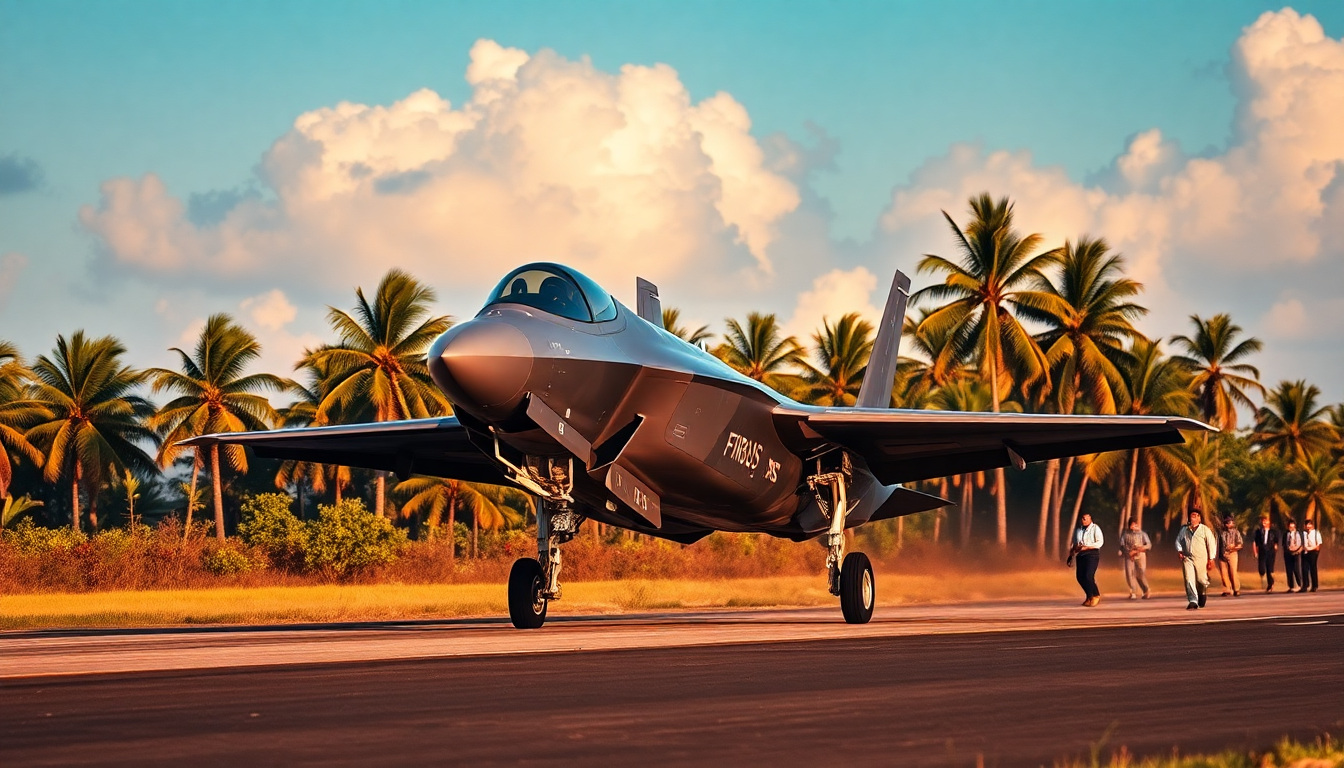Table of Contents
The recent emergency landing of the F-35B in Kerala has ignited conversations about the evolving defense relationship between India and the UK. Imagine this: during what was supposed to be a routine flight over international waters, the aircraft faced a suspected hydraulic system failure, prompting a diversion to Thiruvananthapuram International Airport. With a price tag of over $100 million, this incident does more than showcase one of the world’s most advanced warplanes; it marks a notable moment in international defense cooperation.
The Incident: What Happened?
On what seemed like a standard flight from the Royal Navy’s flagship aircraft carrier, HMS Prince of Wales, the F-35B was unexpectedly forced to land in Kerala due to a technical malfunction. Here’s where it gets interesting: the Indian Air Force stepped in to coordinate with local air traffic controllers, ensuring a smooth landing. Reports even indicate that Royal Navy technicians were quickly airlifted to carry out necessary repairs, highlighting the readiness and cooperation between these two nations. While alarming, this incident emphasizes the operational protocols that govern the use of advanced military aircraft.
Thiruvananthapuram has long been designated as a diversion airfield for British naval operations, but the sight of a high-tech military jet touching down on Indian soil certainly piqued public curiosity. Such events can stir discussions about sovereignty, security, and the strategic implications of foreign military assets operating within national borders. Isn’t it fascinating how a single incident can spark such widespread dialogue?
Strategic Implications: India-UK Defense Relations
This incident is a powerful reminder of the deepening defense ties between India and the UK. Rather than just a reaction to ongoing conflicts in the Middle East, analysts suggest it reflects a broader commitment to mutual security interests. The F-35B, loaded with cutting-edge technology, symbolizes the advanced military collaboration that has been growing between these two nations over the years.
In an increasingly volatile global landscape, strengthening defense partnerships is crucial. The UK’s commitment to sharing its military technology and expertise with India points to a strategic alliance focused on boosting regional security. These collaborations not only enhance operational capabilities but also build a sense of trust and reliability between allies. How do you think such partnerships will shape the future of international relations?
Conclusion: A Reflection on Future Cooperation
The emergency landing of the F-35B in Kerala isn’t just a technical incident; it signifies the ongoing evolution of defense relationships in a rapidly changing world. As India and the UK continue their collaboration on military fronts, this event might open doors for even more joint operations and intelligence sharing down the line. Partnerships like these are vital for maintaining stability and tackling emerging threats, especially in the Indo-Pacific region.
In conclusion, while this incident may have raised a few eyebrows, it ultimately stands as a testament to the deepening ties between India and the UK. As both nations navigate their defense strategies, the emphasis will likely remain on enhancing cooperation to address the complex security challenges that lie ahead. Isn’t it remarkable how interconnected our world has become?


